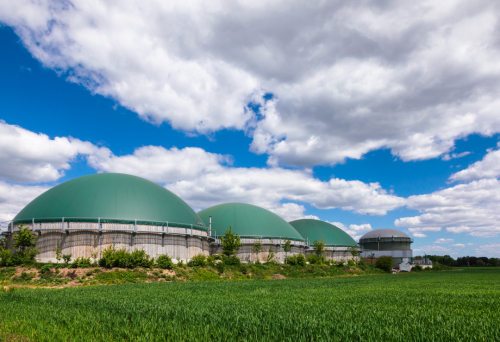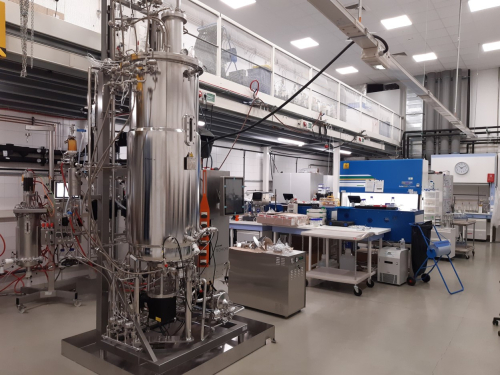The invention proposes the development and testing of a novel unit operation, intended for the continuous sequestration of valuable bio-products (including proteins) from a complex feedstock. The system can help to integrate the bio-manufacturing scenario by introducing a novel unit operation that is able to simultaneously remove biomass, selectively capture the product of interest, and concentrate such product. Moreover, the proposed technology can operate in continuous mode, therefore helping to intensify downstream operations. The integration and intensification paradigm results in higher.
Companies within the biomanufacturing sector are constantly looking for novel products and to gain a competitive edge on the market by continuously improving on their production processes; this helps to distinguish themselves from their competitors in an ever-increasing competitive landscape.
Manufacturers of industrial, specialty and pharmaceutical proteins are reporting capacity constraints due to improvements in the product levels currently attainable via fermentation.
The invention proposes the development and testing of a novel unit operation, intended for the continuous sequestration of valuable bio-products (including proteins) from a complex feedstock. The system can help to integrate; the bio-manufacturing scenario by introducing a novel unit operation that is able to simultaneously remove biomass, selectively capture the product of interest, and concentrate such product. Moreover, the proposed technology can operate in continuous mode, therefore helping to intensify downstream operations. The integration and intensification paradigm results in higher.
Benefits :
The FBRAS technology has the advantage of being placed directly, for example, after fermentation or cell disruption (i.e., in case of intracellular proteins), creating savings in required equipment and manufacturing time, and decreasing contamination and degradation risks. The system incorporates individual contactors (or “columns”) for each stage of operation (e.g., product capture and biomass removal, adsorbent washing, product recovery or “elution”, and adsorbent regeneration). The design provides more flexibility in adjusting process conditions and less dependency of the various operational steps on each other in comparison to the mechanically sophisticated column arrangements required in periodic counter current chromatography (PCC) or simulated moving bed (SMB) chromatography. The FBRAS technology is positioned towards manufacturers of industrial proteins due to the observed high volumes of production and the increased competition regarding manufacturing costs, where the developed equipment provides advantages over traditional chromatography systems. More specifically, the positioning of the FBRAS technology will focus on applications like the separation of active polypeptides or in the field of “precision fermentation”.
Applications :
- The pharmaceutical sector, divided into two subsectors: antibodies and recombinant proteins. This sector is characterized by high-end product value but also by high barriers to entry; the sector is also very conservative.
- The enzyme production sector, with a subsequent distinction between specialty enzymes and industrial enzymes. This distinction is made essentially on the differences in Downstream Processing cost constraints, due to the final commercial price corridor to be achieved.
- The food protein sector. This sector should also be divided into two distinct segments: functional food protein ingredients (plant-based functional protein ingredients, mycoproteins, single cell, insect proteins, amino acids) on the one hand, and the young but fast-growing “precision fermentation” segment.
- Other protein/peptide purification sectors with specific needs in terms of activity and purity, such as peptides with biocontrol or biostimulants properties (agriculture), or peptides for cosmetic and nutraceutical applications. This market will not be analysed the same way because the typical Downstream Processing flows, as well as, the production cost objectives are dependent on the nature of the final product (peptide).
The potential impact of the project is spread along several sectors from health care and personalized medicine to sustainable chemistry to “non-cruel” protein sourcing.
Opportunity:
- Industrial partners willing to test the technology in a relevant environment, at pilot scale.
- Industrial providers, that would be interested in further co-development.
- Providers of process control equipment.
- Academics partners, in the field of process modelling and simulation and/or CFD.
Intellectual property status
Patent already applied
![A Fluidized Bed Riser Adsorption System for Selective Protein Recovery [FBRAS]](https://static2.innoget.com/uploads/thumb/wide//uploads//f04f322327c1fb94c7c55ad506334936a79fd928.png)






